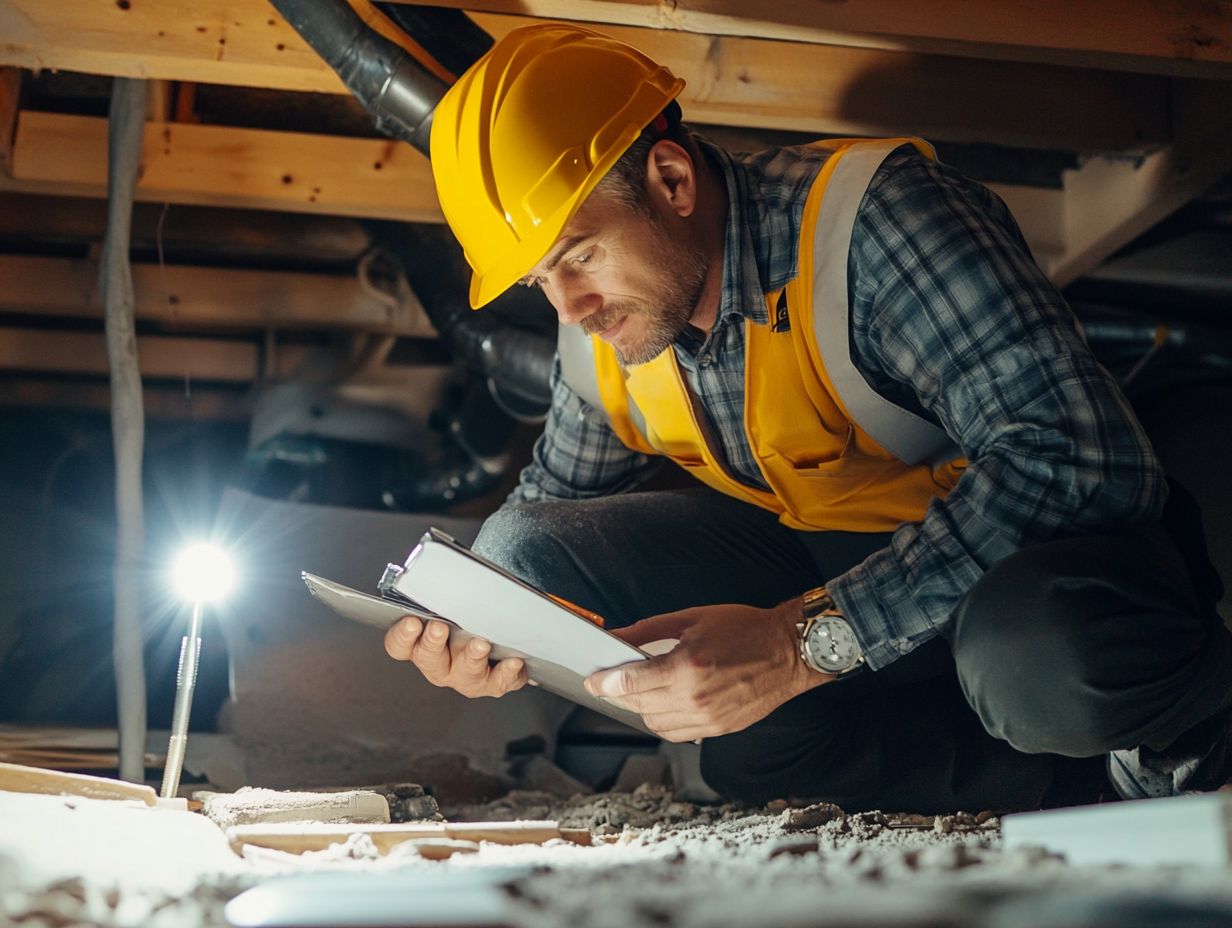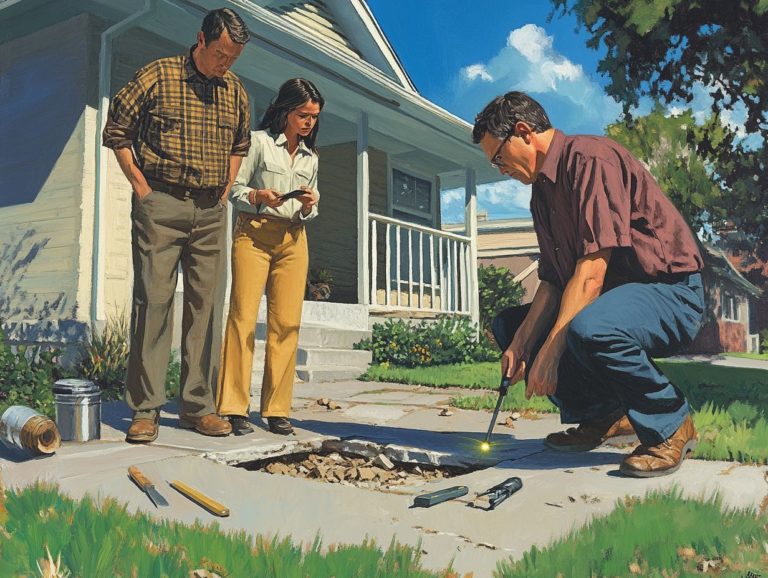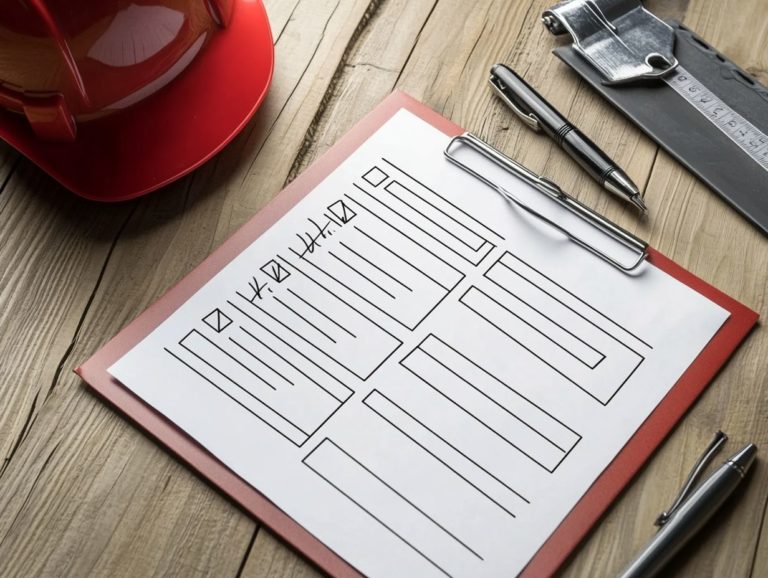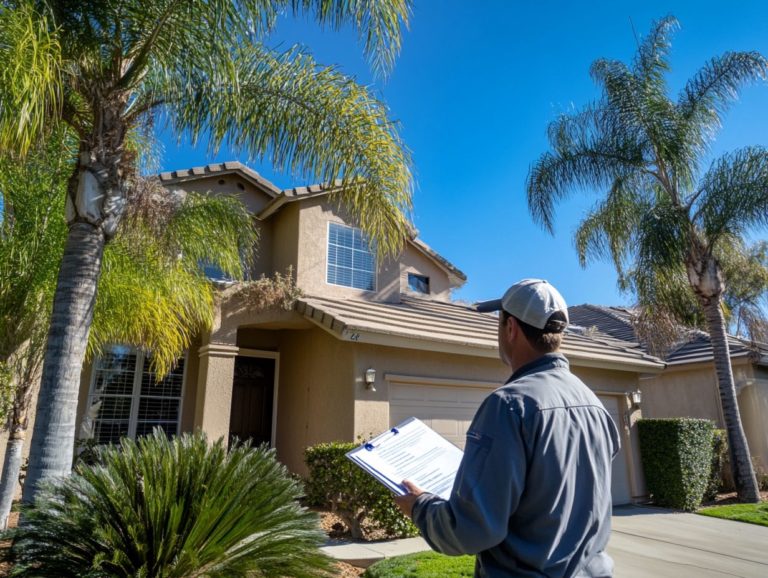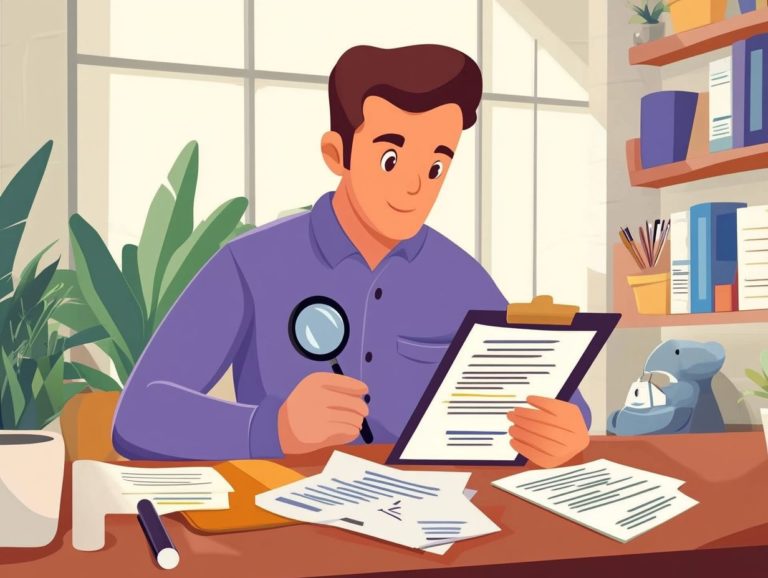Understanding Home Inspection Ethics
Are you unsure about the role of ethics in home inspections? Home inspections are crucial. They help both buyers and sellers make informed choices. The reliability of these inspections depends largely on the ethical standards maintained by the inspectors themselves.
This article delves into the significance of home inspection ethics. It outlines the foundational code of conduct that guides professionals and the common ethical dilemmas they may encounter.
It highlights serious repercussions of unethical behavior while providing best practices to uphold high standards. Whether you re a homeowner, a prospective buyer, or an inspector, grasping these principles is essential for nurturing trust and transparency in every transaction.
Contents
- Key Takeaways:
- Importance of Home Inspection Ethics
- Code of Ethics for Home Inspectors
- Ethical Dilemmas in Home Inspections
- Consequences of Unethical Behavior
- Maintaining Ethical Standards
- Frequently Asked Questions
- Why is it important to know about home inspection ethics?
- What are some common ethical issues during a home inspection?
- What are the consequences of not following ethical guidelines during a home inspection?
- How can home inspectors ensure ethical conduct during an inspection?
- What should I do if I suspect unethical behavior during a home inspection?
- Are there any resources available for understanding home inspection ethics?
Key Takeaways:
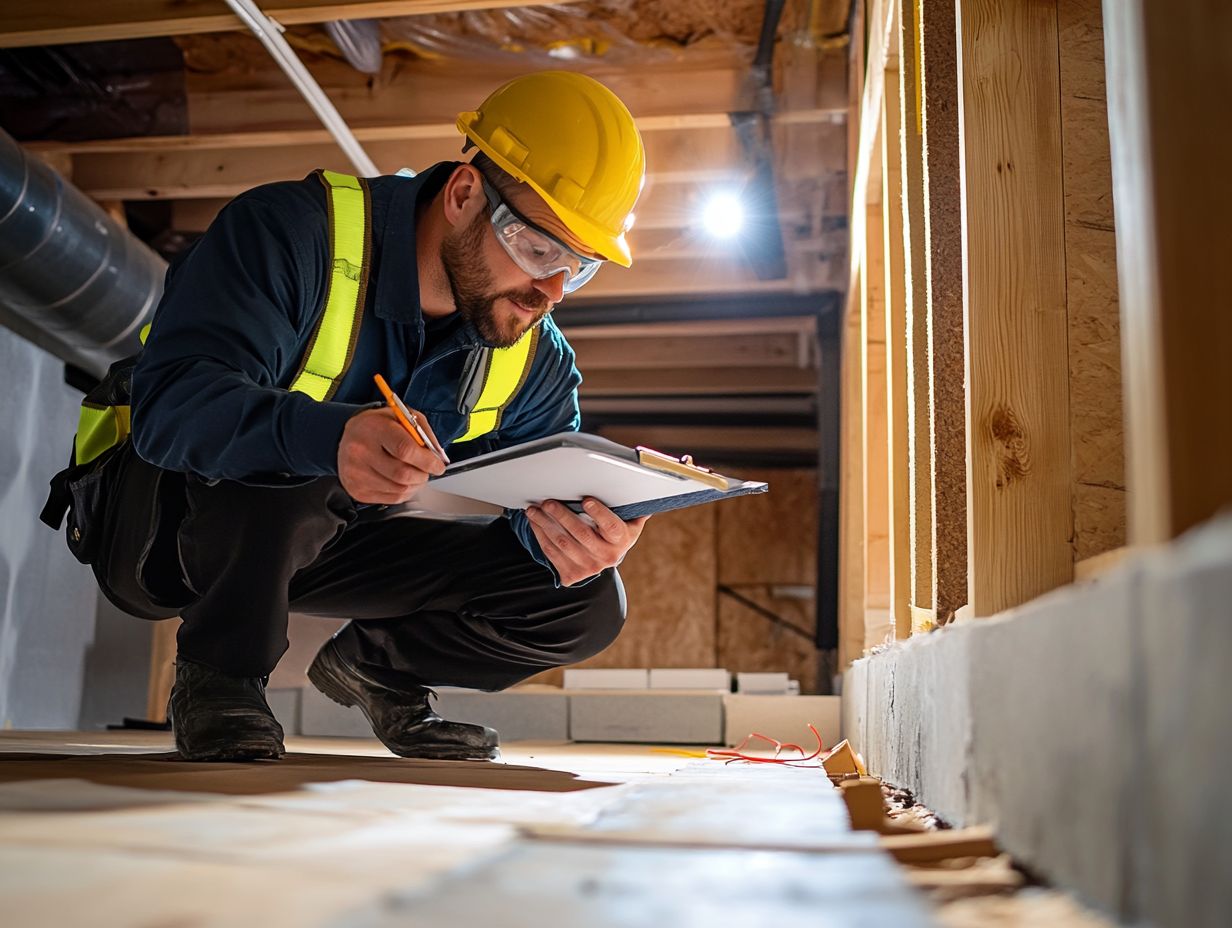
Home inspection ethics are crucial for maintaining fair and honest practices in the industry.
Home inspectors must adhere to a code of ethics that outlines standards and principles to guide their work.
Unethical behavior in home inspections can lead to serious legal consequences, making it essential to maintain ethical standards at all times. For more information, refer to understanding home inspection liability.
Importance of Home Inspection Ethics
Home inspection ethics matter greatly. They ensure unbiased assessments in the industry.
As a home inspector, you play a vital role in protecting your clients’ interests. You must adhere to the rigorous standards set forth by esteemed organizations like the American Society of Home Inspectors (ASHI) and the International Association of Certified Home Inspectors (InterNACHI).
By prioritizing your ethical responsibilities, you enhance the integrity of property assessments and uphold the esteemed reputation of your profession.
Ensuring Fair and Honest Practices
Ensuring fair and honest practices in home inspections is crucial for maintaining trust. It fosters a transparent relationship between you and your home inspector.
When home inspectors prioritize confidentiality and provide unbiased assessments, they lay down a solid foundation of trust. For example, when an inspector keeps your sensitive information private, it encourages open communication.
By delivering unbiased evaluations that align with established codes of ethics, inspectors ensure you receive accurate information, empowering you to make informed decisions. This transparency benefits everyone involved: you gain confidence in your investment while inspectors boost their reputation, paving the way for positive word-of-mouth referrals and repeat business.
Code of Ethics for Home Inspectors
A strong code of ethics for home inspectors sets forth clear guidelines. These uphold your ethical responsibilities, ensuring that you adhere to the highest standards of practice within the industry.
This framework safeguards your professional integrity and fosters trust with clients, reinforcing the reputation of the industry as a whole.
Standards and Principles to Follow
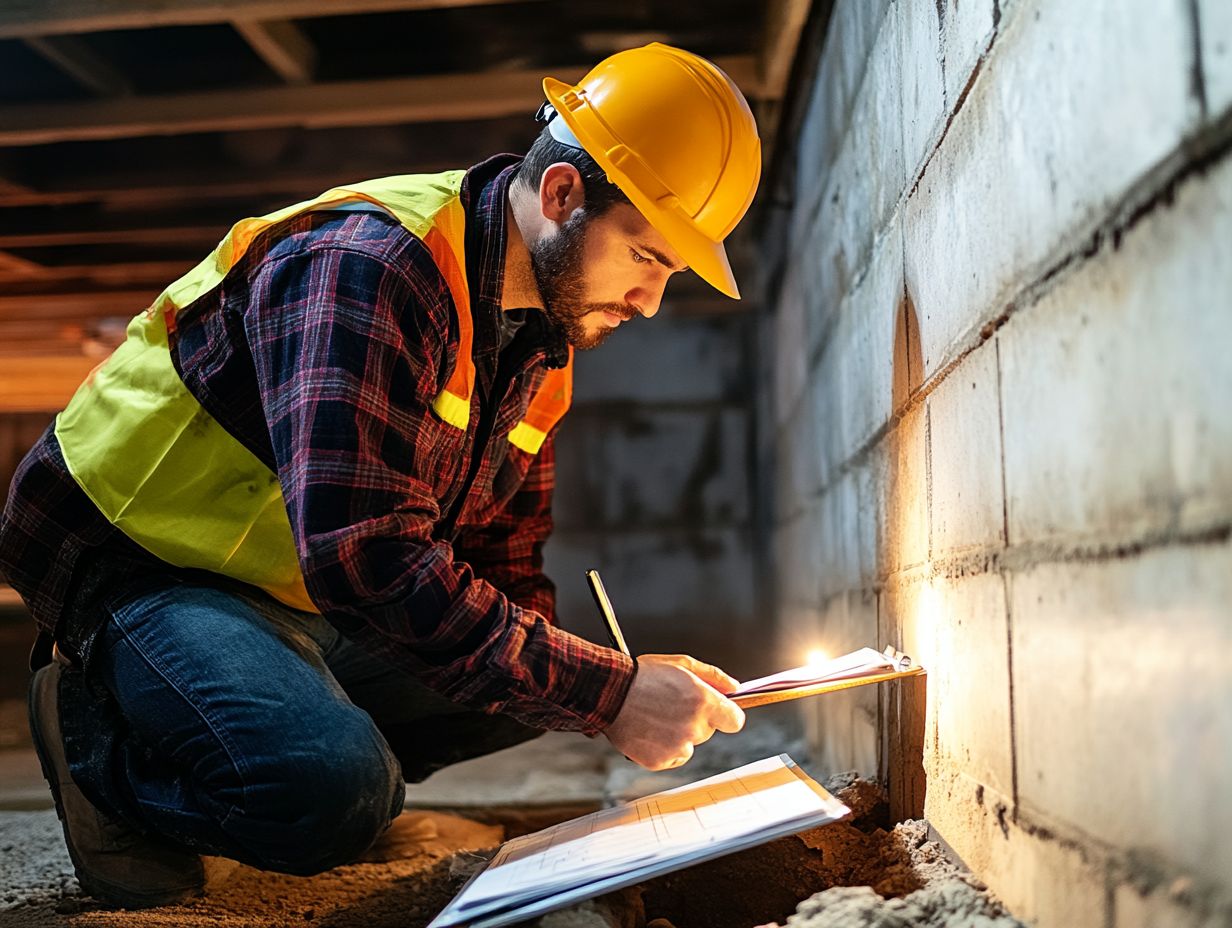
As a home inspector, you are expected to adhere to established standards of practice. These standards delineate ethical principles and procedures for conducting comprehensive property assessments.
These guidelines ensure that you provide accurate evaluations while upholding transparency and integrity throughout the inspection process.
Sticking to these principles improves your assessments and fosters trust between you and your clients. On the other hand, straying from these standards can lead to misleading results, potential legal issues, and a damaged reputation.
Continuous education is essential for you. It keeps you informed about best practices, emerging technologies, and regulatory changes. This commitment not only reinforces your dedication to ethical conduct but also ensures you deliver the highest quality of service possible.
Ethical Dilemmas in Home Inspections
Ethical dilemmas in home inspections frequently emerge from conflicts of interest. These situations place you in a position where you must prioritize client safety and confidentiality.
Navigating potential biases in your assessments can be a formidable challenge. It requires a delicate balance between professional integrity and the expectations of those you serve.
Upholding these standards is crucial for your success! Make sure you know these ethics! They re key to your success in real estate!
Common Challenges and How to Handle Them
You may encounter common challenges as a home inspector that can lead to ethical dilemmas, complicating your commitment to protecting clients’ interests while upholding professional integrity.
These pressures often stem from clients who expect favorable assessments, especially in competitive markets where home sales are paramount. You might find yourself in a delicate balancing act, where the urgency of client demands clashes with the necessity of delivering accurate and unbiased evaluations.
Competing interests from real estate agents and other external stakeholders can further complicate matters. These conflicts may tempt you to conform to expectations rather than strictly adhere to ethical standards.
Handling these challenges requires clear communication, transparency, and a steadfast commitment to doing what is right. Integrity must always triumph, even amidst the pressures of the industry.
Consequences of Unethical Behavior
The consequences of unethical behavior in the home inspection field can be severe. Engaging in such practices may lead to legal ramifications, erode the trust you’ve built with clients, and ultimately cause a significant loss of credibility.
You must follow ethical standards to succeed and maintain your integrity in this profession.
Legal Ramifications and Repercussions
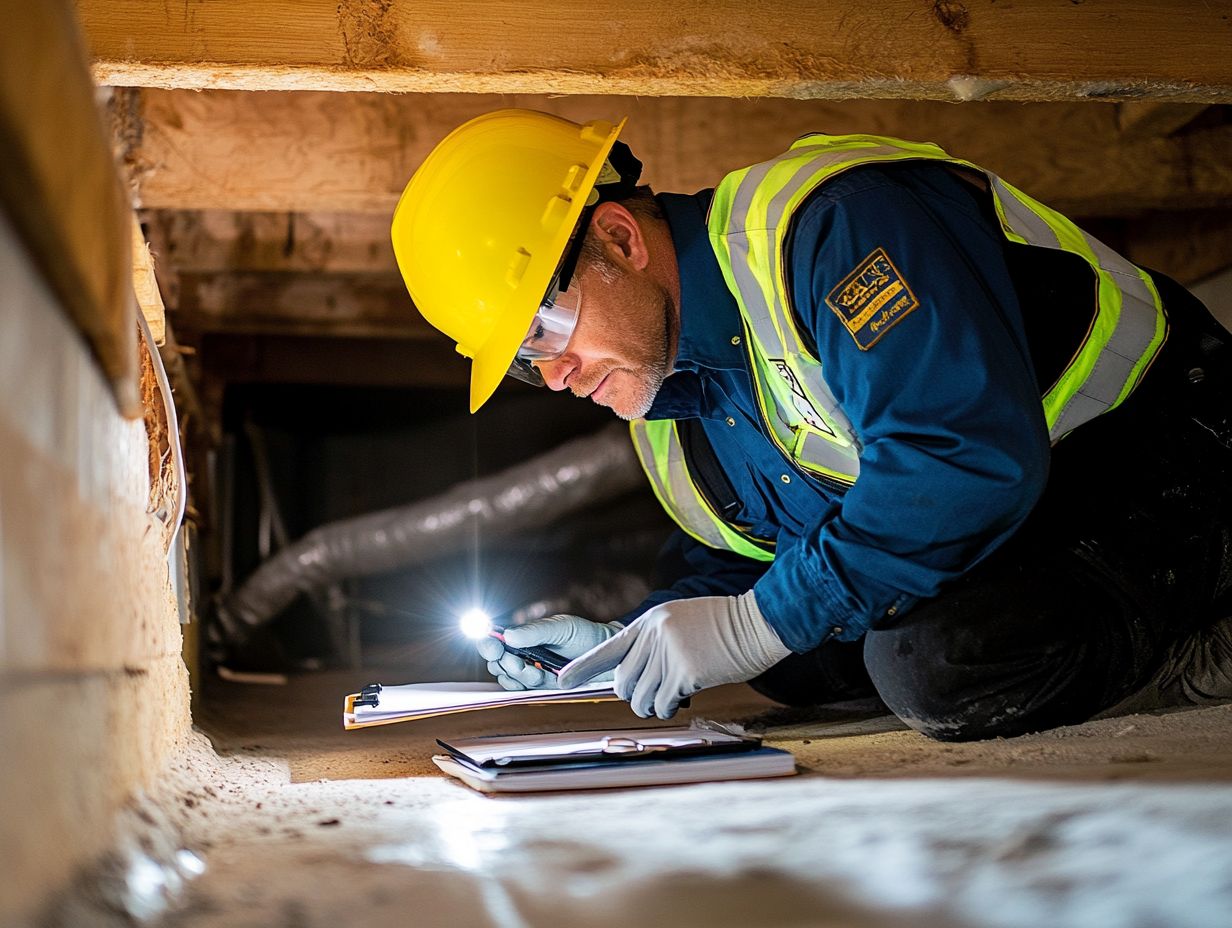
Legal ramifications stemming from unethical behavior in home inspections can lead to significant consequences, including lawsuits and the potential loss of licenses. This ultimately undermines the integrity of the inspection industry.
The implications you face can vary widely, from minor infractions to severe breaches that result in devastating financial losses for homebuyers misled by inaccurate reports.
For instance, there have been notable legal cases involving inspectors who neglected to disclose critical issues, such as mold or structural damage, leading to costly repairs for unsuspecting homeowners. These scenarios underscore a clear failure to adhere to established ethical standards.
By cultivating a culture of transparency and strict compliance with regulations, you can sidestep these pitfalls, protect both your career and the trust of your clients. This commitment not only safeguards your professional reputation but also supports the broader integrity of the real estate market.
Maintaining Ethical Standards
Maintaining ethical standards in home inspections is essential for guaranteeing both quality and consistency in property assessments. It demands your unwavering commitment to best practices and continuous professional development as an inspector.
Best Practices for Home Inspectors
Implementing best practices is essential for home inspectors, as it fulfills your ethical responsibilities and elevates the quality and reliability of the inspection reports you provide to clients.
By adhering to established ethical standards, you can cultivate trust and showcase your commitment to transparency and integrity. This means clearly disclosing any potential conflicts of interest or limitations encountered during the inspection process.
Incorporating modern technology, such as thermal imaging, which uses heat detection, and drone inspections, which use flying cameras, can significantly enhance the overall quality of your assessments.
Effective communication with your clients is paramount. Take the time to thoroughly explain your findings, ensuring they grasp the implications of any issues uncovered. Regularly updating clients on progress and delivering detailed follow-up reports will further strengthen your relationships and promote a culture of transparency.
Frequently Asked Questions
-
Why is it important to know about home inspection ethics?
Understanding home inspection ethics is essential for ensuring that the home inspector follows a code of conduct and maintains the highest level of professionalism during the inspection process. For more on this topic, check out understanding home inspection standards, which also helps to protect the interests of both the homebuyer and the seller.
What are some common ethical issues during a home inspection?
Common ethical issues during a home inspection include conflicts of interest and misrepresenting findings. To navigate these challenges, it’s crucial for inspectors to adhere to understanding home inspection protocols and maintain high ethical standards.
What are the consequences of not following ethical guidelines during a home inspection?
If ethical guidelines are ignored, inspectors may face legal issues, lose their license, and harm their reputation. Buyers or sellers could also suffer financially or face safety hazards if vital issues are overlooked.
How can home inspectors ensure ethical conduct during an inspection?
Inspectors can maintain ethical conduct by following a clear set of rules, being honest in their reports, and disclosing any conflicts of interest. Ongoing education is key to staying informed and skilled.
What should I do if I suspect unethical behavior during a home inspection?
If you suspect unethical behavior, first discuss your concerns with the inspector directly. If the matter remains unresolved, consider filing a complaint or seeking legal advice.
Are there any resources available for understanding home inspection ethics?
Yes, many resources exist, including professional organizations and online courses. Inspectors should regularly seek out information to uphold their professionalism and provide excellent service.

